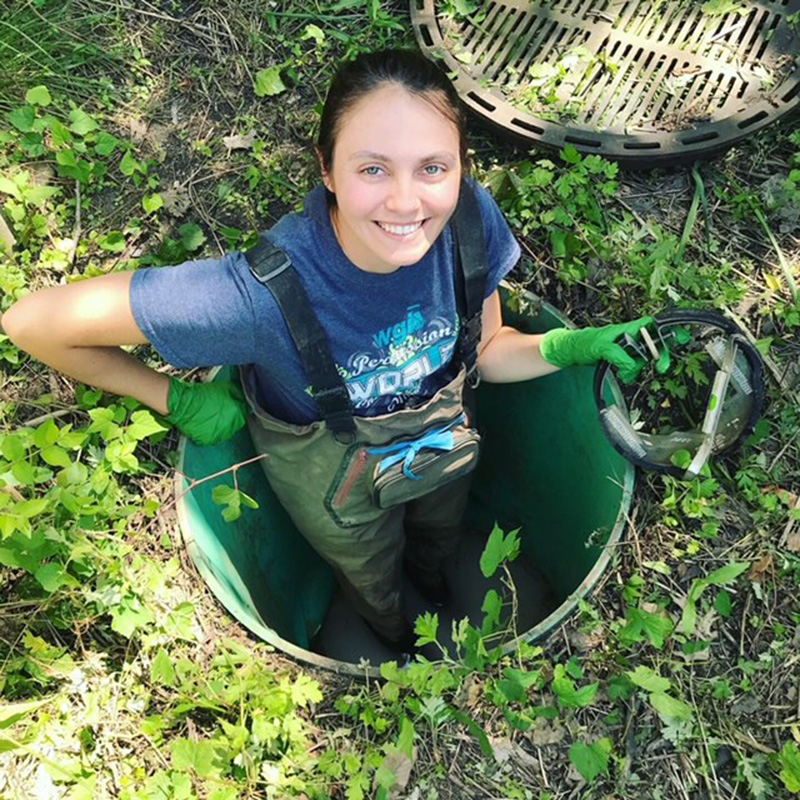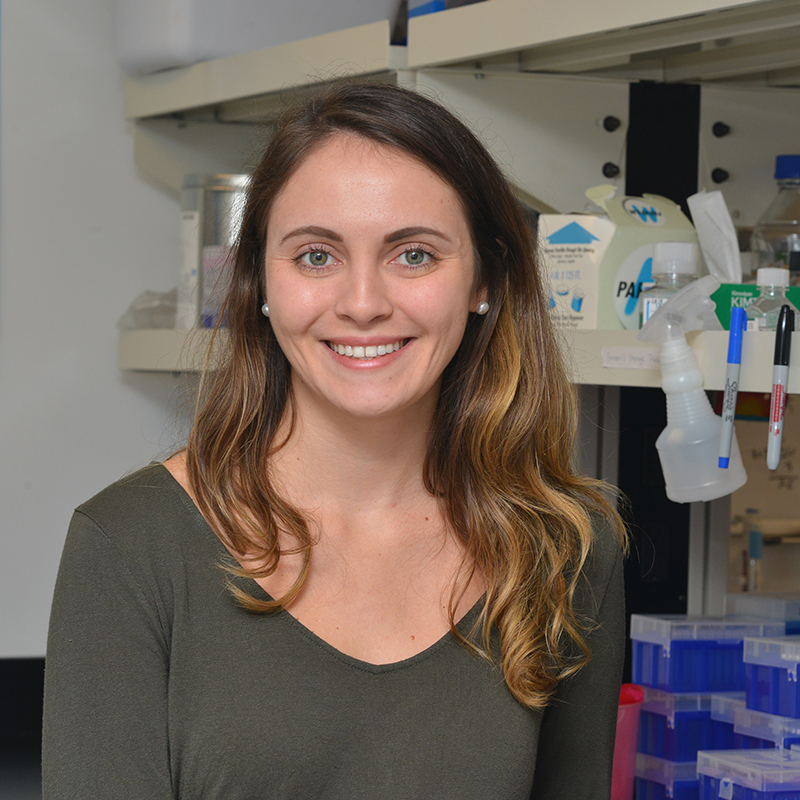 |

|
 |
Ph.D. candidate, Kristen Croft, at a field site. |
|
Civil and environmental engineering (CEE) Ph.D. candidate, Kristen Croft, recently won the 2023 Outstanding Graduate Assistant Award in the category of Outstanding Research Assistant. Croft won for her contribution to faculty research, mentoring other graduate and undergraduate students, having evidence of promise as a researcher, and having evidence of scholarly achievements. Croft is co-advised by Drs. Birthe Kjellerup and Allen Davis.
“It was an honor to first be nominated for this award by my advisors and then to receive this award. It was a reminder of all the hard work I’ve done over these past 4+ years and the achievements I’ve made along the way,” said Croft. “This award came at a time where I had several rejections from other such things, and for me personally just felt like, ‘wow I needed a win!’. I am grateful to be recognized with this award for my efforts and achievements as a GRA.”
Currently, Croft is working to complete her Ph.D. dissertation focused on the evaluation of stormwater management practices for the treatment of organic and inorganic pollutants from industrial stormwater. Mainly, she is concentrating on heavy metals such as copper and zinc. These metals aren’t necessarily toxic to humans, but they have a heavy impact on aquatic environments. As an example, the salmon population near Washington state is a large part of the local economy. However, copper and zinc negatively impact the population of salmon, which then affects communities in the area.
Croft has turned her attention toward bioretention systems as a possible solution to remove these metals from aquatic environments. These systems layer soil, biochar, activated carbon, and even some plants that have the potential to absorb undesirable metals, therefore, removing them from the larger ecosystem.
“These systems act like a huge filter. They are really good at removing particulates, and some of the metals might be attached to soil particles. Many of these metals are already getting removed really well with these systems,” said Croft.
Even as an undergraduate, Croft felt driven toward her area of research. She started off as an industrial engineer, but an undergraduate class on environmental geology motivated her to put her mind toward solving environmental problems and making a difference, after which, she switched her major to environmental engineering.
“I was really motivated by the class and motivated to work on those kinds of problems. I feel that as long as I can make small changes, even in a small community, that would be enough,” said Croft.
In addition to her research, Croft has led an involved extra-curricular life here at the University of Maryland. She served as a TA for two classes, mentored undergraduates in their research in the lab, and even mentored a high school student. She has been named a Clark Doctoral Fellow, a UMD Global STEWARDS Fellow, and served as the President of the CEE Graduate Student Council.
January 25, 2023
|

